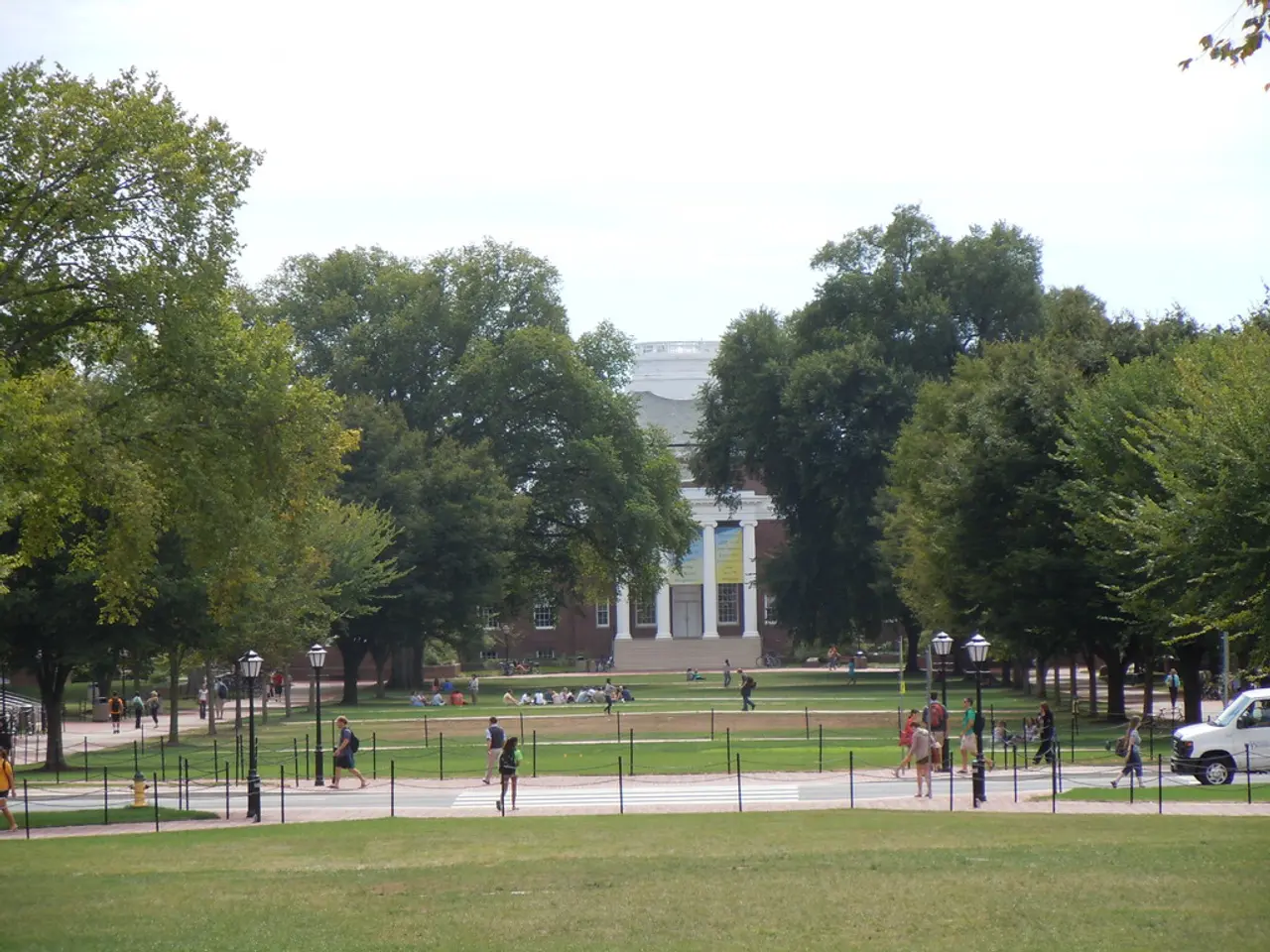Unveiling the Prestige of Ivy League Schools
Prestigious Ivy League Institutions: Pinnacle of Advanced Academic Learning
In the heart of the United States, eight esteemed institutions stand tall as the epitome of academic excellence - the Ivy League schools. These prestigious universities, including Harvard University, Yale University, Princeton University, Columbia University, University of Pennsylvania, Dartmouth College, Brown University, and Cornell University, are renowned for their rich history, high standards, and influential alumni.
Diverse Academic Landscapes
Each Ivy League school boasts a unique academic landscape, with a wide array of programs that cater to various interests. Social sciences, life sciences, international affairs, and the performing arts all thrive in Ivy League settings. Some institutions, such as the University of Pennsylvania with its Wharton School, Yale University with its law and drama schools, and Columbia University with its journalism and public policy programs, are especially strong in professional training.
Blending Liberal Arts with Professional Education
Ivy League schools are known for their ability to seamlessly blend a rigorous liberal arts education with access to professional and graduate-level instruction. This blend equips students with a well-rounded education, preparing them for a multitude of career paths.
A Nurturing Academic Environment
The presence of strong faculty, competitive research opportunities, and vibrant academic communities supports student growth across all disciplines. Ivy League graduate schools attract research funding, talented faculty, and top applicants, making them magnets for international students.
A Glance at the Ivy League's Elite Programs
Harvard Law School, Yale Law School, the Perelman School of Medicine, and Harvard Business School are examples of Ivy League programs that have shaped global leadership. Yale Graduate School, Columbia's School of International and Public Affairs, and Cornell's Graduate School offer advanced studies in various fields such as international development and biomedical science.
The Unique Characteristics of Each Ivy League School
Each Ivy League school has its unique features that set it apart from others. Interdisciplinary programs, world-class faculty, and abundant research opportunities are just a few aspects that contribute to their distinctiveness. Many Ivy League schools were founded in the 17th and 18th centuries, providing them with a rich history and tradition. Their strong alumni networks often provide graduates with significant career opportunities.
The schools vary from urban (e.g., Columbia) to rural settings (e.g., Cornell), offering different lifestyles and opportunities for students. Each school has its own unique extracurricular activities, sports teams, and cultural events that shape the student experience.
The Competitive Admission Process
Ivy League schools are highly competitive, with low acceptance rates, making them extremely challenging to get into. Despite the challenges, a degree from an Ivy League school often serves as a stepping stone into elite careers and powerful alumni networks.
In addition to these formal Ivy League schools, there are other prestigious institutions sometimes referred to as "Ivy Plus" schools (e.g., Stanford, MIT, the University of Chicago, and Caltech) because of their similar academic rigor and prestige, although they are not officially part of the Ivy League. These institutions offer a similar blend of academic excellence, rich history, and prestigious reputation, providing students with a challenging and rewarding educational experience.
- The Ivy League's unique academic landscapes encompass not only science and engineering but also technology, social sciences, life sciences, international affairs, and the performing arts.
- Within the Ivy League, innovation and learning are nurtured through strong faculty, competitive research opportunities, and vibrant academic communities, ultimately fostering advancements in physics, technology, and other fields.
- Education-and-self-development are integral parts of the Ivy League system, with many schools offering programs in the fields of environment, public policy, and journalism.
- Ivy League schools, by their reputation and elite programs in fields such as business, medicine, law, and engineering, are shaping global leaders and contributing significantly to research and development, progress in technology, and environmental sustainability.




